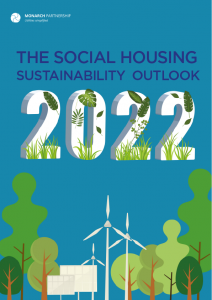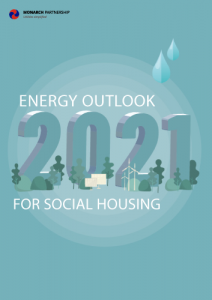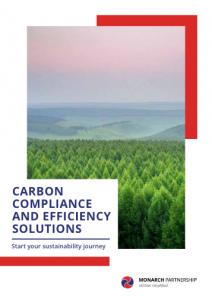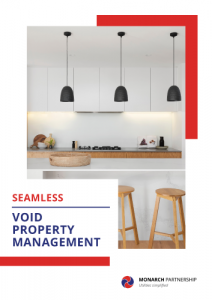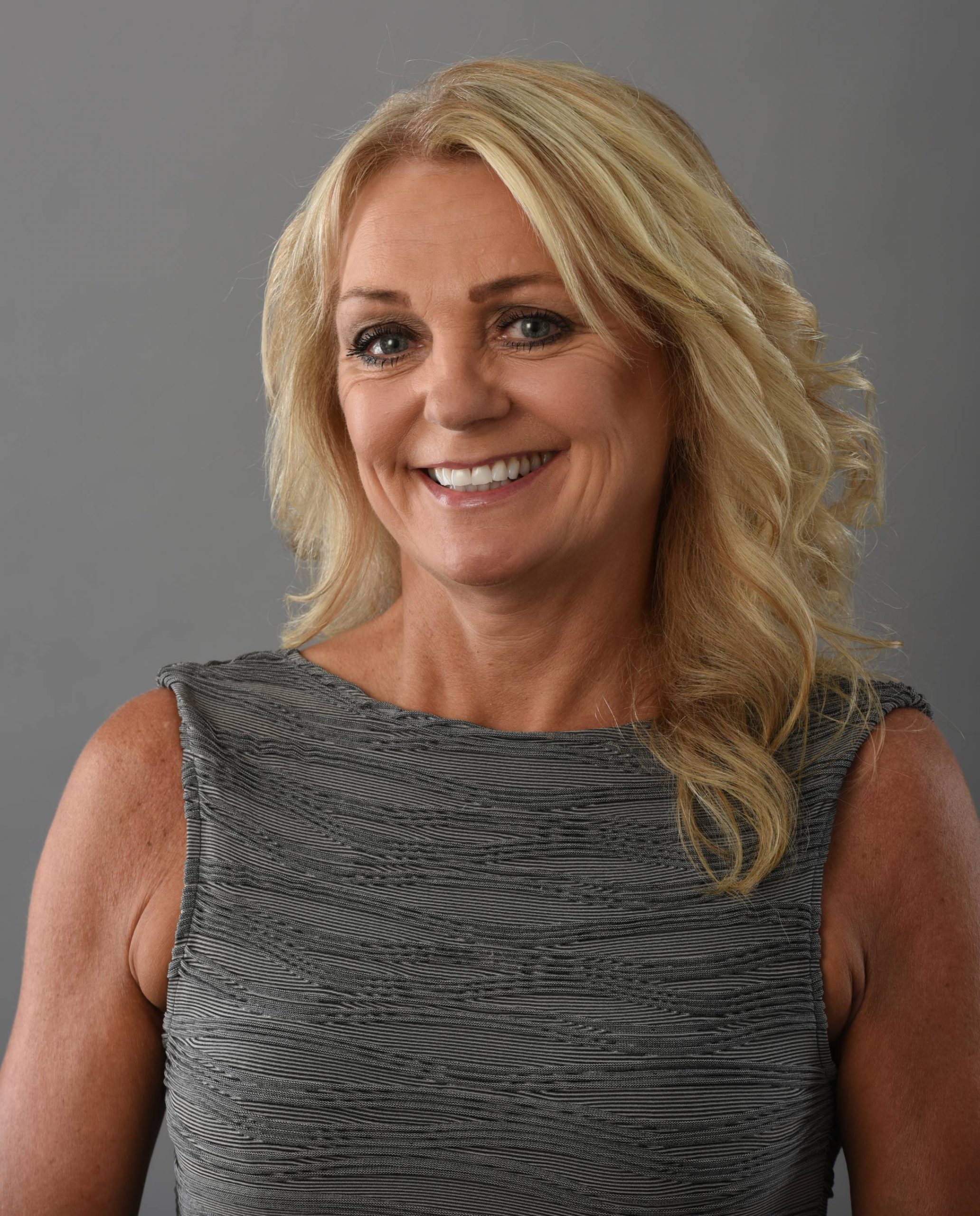
Karen Barker has worked at Monarch Partnership as Head of Customer Relations for over 15 years. During that time, she has seen the business progress and expand.
We talk to her about managing clients, and the impact of the Russia-Ukraine crisis on energy prices…
Hi Karen! Could you describe your role and what it’s like working at the Monarch Partnership?
Sure! I’m Head of Customer Relations, and I’ve been with Monarch for 15 and a half years now. I work closely with the suppliers, and I would normally be the first point of call for escalations, whether it be from the ERMs to the suppliers, or the suppliers talking about some of our staff members.
I normally attend the majority of the meetings with the ERMs and, in the current climate, it’s normally by teams, rather than face-to-face – which I miss. A couple of years ago, I was just out on the road the whole time, meeting face to face.
The purpose of that is to make sure that we are meeting, if not exceeding, our clients’ expectations. You can normally gauge a good idea of how they’re performing and whether or not they’ve got any issues. I also work closely with Lorraine Dissake and, between us, we manage the ERMs.
In addition to that, I’m quite often part of the presentation team for prospects alongside sales, Bikram’s team.
What do you like most about working at Monarch?
Understanding the clients’ individual needs, and fulfilling their vision. I get a lot of satisfaction from seeing and hearing from happy clients – knowing that we’re doing a good job.
Our clients entrust us to work on their behalf, to maximise value for money. And they are working on behalf of their individual tenants, and obviously the cost of utilities are recharged. So it’s about keeping those costs to a minimum.
It’s quite useful to share experiences between housing associations. A good example of that is the Section 20 dispensation [this is a requirement for landlords to consult with leaseholders, prior to undertaking works on residential properties. Alternatively, it may be used prior to entering into a contract lasting longer than 12 months, where the cost is passed onto the tenant – housing associations may wish to do this, in order to enter into longer term energy contracts].
A couple of our clients have achieved it, and it’s good to get them talking together about their experiences, the cost, and the time involved in order to achieve dispensation.
Also, it’s a very friendly team to work with and that helps. It’s quite relaxed and we support each other.
You said you’ve been at Monarch for more than 15 years. What are the biggest changes that you’ve seen during that time?
Oh, wow! Staffing levels, without a doubt. When I first started, there were just 20 team members. Now it’s vastly increased, not only with staffing levels but also with the products and the sister companies that we have now. Monarch’s services are wide-ranging now.
You could say that we are a one-stop shop and we can provide everything!
And did you start off in a similar role?
Yes, I’ve always worked at this sort of level. My previous experience was in insurance, and that was customer service management.
The Utility Industry is quite a niche business, so it was quite a change for me. But once you have confidence in the product…
I think, over the years, the ERM role has definitely changed.
More recently, we have offered additional opportunities for progression. We’ve recently started a graduate scheme. Tamzyn Elliott-Pullen and Gemma Lavis are a great example. They came in as graduates, and within a year they have become extremely capable ERMs. They are very confident, extremely young and enthusiastic.
So moving on to your day-to-day interactions, what would be the process and what would a typical day be like for you?
I work with all of the teams and analysts to see what tenders they are due. If any of the ERMs don’t get their prices back, and they’ve got the client ready and waiting to sign up, they come to me!
So, I’m working with the ERMs, attending the majority of meetings with the clients who are the most important people. I’m working alongside Lorraine Dissake. If there are any issues, then we deal with the suppliers. We have a very close relationship with all of our suppliers and we have regular meetings, in particular to discuss debt.
It’s not always the client’s fault, and we’ll work with both the client and the supplier to find a solution. There’s a lot of change around as well, with suppliers, housing associations, changes of tenancy, etc.
We might need to find suppliers specific to their needs, for example if we had a large client with 2000 sites or a client with smaller or single sites, then we’d work closely with the client to find the ideal supplier for their situations. A good recent example is a tender that I received recently, for a couple of hairdressers. As they had on paper, “credit issues” – after they had been closed for two years due to Covid, they would have struggled to find a supplier to work with them. Luckily, we were easily able to work with a different area of our business and we were able to accommodate them with a supplier.
What would you say are the main concerns that clients present to you?
Oh, without a doubt, the current price crisis. I don’t think there’s one client that hasn’t contacted us and raised concerns. Particularly those that are tied into a contract with Gazprom.
The first thing they wanted to do was cancel their contracts. We worked closely with them to address their concerns and also with Gazprom Energy themselves to obtain a statement and information on their continuity of service. We went to every other supplier as well, obtaining similar statements from them about their view on energy security, during these volatile times. It typically came from a member of their board and we issued these statements to our clients, to give them that reassurance. The CNG Energy situation was extremely frustrating for us and the clients. [CNG Energy were a business energy supplier that ceased trading in November 2021]. We were proactive – and sourced different suppliers as soon as they had ceased trading. Our clients went through a change of supplier process, which took a few weeks. It was quite expensive in the short-term, but we kept them advised.
We manage our clients’ concerns, we listen, and we empathise because, at the end of the day, our clients are the ones that have to justify these unprecedented cost rises. They’re tenant-facing, and we always reassure them in the meetings.
We provide them with easy-to-read market information and graphs. When the crisis first began it was incredibly difficult, because it wasn’t in the media. So we were passing on these ridiculous increases in costs – around 200% increase in costs to these clients – it just didn’t seem real.
When we saw it in the news and it began to hit the headlines, it did make those conversations easier for us. Because people could actually see what’s happening. Now we’re looking at a 300% increase. It’s a real crisis.
Do you find customers are more willing to talk and work with you now, given the current energy crisis?
They’re obviously very concerned. Usually, we’d start to look at renewals about six months in advance and start monitoring the market. Where we see a good opportunity, we start passing renewal prices to the client.
And then, of course, they started to see these price increases, and so many of them decided to sit on the fence. They were thinking ‘it can’t stay like this, it’s not sustainable’. But, unfortunately, the market’s only going one way, and that’s up.
Prices are likely to remain elevated and have been extremely volatile. With any renewals coming up this year, customers should be seriously considering completing renewals, or at least be ready to do so shortly. If they are large enough, then flexible contracts should be considered as this will allow energy to be bought and sold over time, rather than making a single purchasing decision for a fixed contract.
The duration of the contract would be very much dependent on whether the customer is looking to try to get lower prices later or manage costs. For fixed contracts, taking a shorter term contract (e.g. 12 months) would allow the customer to revisit things sooner and might benefit with a lower price on renewal, but a longer contract would mean costs now are lower as the 2nd and 3rd years of contracts would be cheaper due to lower wholesale prices. For flex contracts I’d suggest a longer duration (24 – 36 months) to allow time to manage the position over a longer period.
Of course, the situation in Ukraine and Russia just made it far, far worse. We then started to be concerned about supply, and whether or not supply was going to be hit – particularly gas supplies. So the whole situation has been very, very stressful for the team out there.
We’re constantly fighting fire, but it’s so much easier now that the clients have got a much better understanding. And it’s beyond anyone’s control. So what we need to do is sit down and talk about what’s the best situation for them. They’re all housing associations, but they’ve all got different needs and a lot of them are charities. The majority of the charities were reluctant to tie into longer-term contracts.
Did you see the conversations changing, from procurements are not going very well at the moment, towards suggesting other options to clients?
Yes. A lot of our clients are now considering flexible purchasing. In particular, we’ve got one housing association that we’ve had for 15 and a half years – from when I first started!
So, we asked them, ‘have you considered flex?’ And they said, ‘no, we need budget certainty’. A lot of them say they need to know what they’re paying, and when. They can’t take that additional risk, of not knowing what the market is doing.
We held several meetings with our Forecaster Serge Mazodila (Bsc, MSTA, CFTe) and finally came up with a procurement strategy that would suit their needs. It’s all about providing transparency and weighing up all the options. They were pleased with the results and have taken on not only gas, but also electricity, on a flex deal and we’re managing that for them.
We’ve probably got a mix of housing associations that have gone down the flex route. And that’s really because of the risk – sometimes they’re risk adverse. Whereas, at EIC, the majority of their clients are on flex. Again, we use EIC’s expertise to clearly explain to clients that it’s the best thing for them right now. John Palmer, EIC’s Director of Flexible Procurement, is superb at helping with this.
I don’t think there’s any quick solution to this situation. It’s going to continue for a while now.
So you’ve just released an updated tenant information pack for clients to give to their tenants. What is your advice to tenants who are struggling with their energy bills?
We’re amending that, so it includes some of the information around the Russia – Ukraine crisis. It will provide simple, yet effective, tips on how to keep consumption and costs down and it can be dual branded so housing associations can easily share it with their tenants.
I would suggest that tenants speak with their supplier. If you’re struggling to pay, let them know that you’re vulnerable, because disconnection should never be an option with anyone that’s vulnerable – particularly those in supported housing or care homes. With suppliers, you can fill in a priority list and if anyone is at high risk, then they would never consider disconnecting.
Also, make use of free and simple tips on how to cut down on your consumption and energy. So, use smart meters, turn off standby appliances, install a smart thermostat. Turn down your thermostat, and buy efficient appliances.
Wash your clothes at a lower temperature, and invest in timers when you’re not around.
Any other thoughts about the energy markets in your client space?
Well, obviously, we are concerned, particularly with the further increases over the supply of gas from Russian-backed suppliers. It’s equally important to keep our clients up-to-date with developments, and make good use of our team of analysts and forecasters. We’ve got Serge Mazodila, Head of Risk Management and Trading, Procurement constantly looking at the energy markets.
If there are any opportunities where we see a dip in the market, certainly go out there. Get the prices and secure the renewals, and look at the different options.
I would look at a client’s appetite for green energy. Some of our suppliers are green anyway – like SSE, Opus Energy, for example.
Obviously, with the increase in prices that might not be what the client would want. But we’ve had discussions in the past where the clients were very much under pressure to go green, which we can help with.
What do you enjoy most about your role?
Interaction with the teams, suppliers, clients, talking! The work-home balance combination is great for me.
But coming into the office and working two days – which the majority of the ERMs do – is really good. I will set aside something that I really need to concentrate on where I need the peace and quiet, it’s great.
Equally coming into the office, you get to speak to people and we have such a laugh. It’s hilarious! You’re sitting there and you have a quick glance at teams and you hear people laughing out loud, and that’s great.
So, let’s talk a little bit about you. What do you like to do in your spare time? What are you watching on television? What films have you been watching, what books are you reading?
I’ve recently moved to Kent, in a converted barn. And we were meant to downsize, but it’s even bigger than the house we already had. So there’s lots of work to do. It’s just beautiful. A lot of time is spent painting and decorating. My husband does the building and landscaping. And I quite enjoy doing that.
Reading, that’s a holiday activity. I get through loads of books – I just like to sit there and chill, do the complete opposite of what I do at home, which is a hundred miles an hour. I just sit there and chill.
Watching on TV? I tend to watch those mini-series, on Netflix. The most shocking thing I’ve ever seen on TV is ‘Squid Games’. With each episode, you think it can’t get any worse! Without a doubt, when the second series comes out, I’ll be all over it!
Do you foresee the business changing, for example, with all the previous focus on Net Zero – is that going to come to fruition again?
Oh, absolutely. But I think managing the crisis is our main focus. In particular, we talk to our clients about sustainability. And, as you said, the increased need for that sustainability.
They’re under a lot of pressure now, working towards carbon zero. Achieving that is extremely important to them. And we always promote our carbon team at EIC; we work very closely with them. We’ve got Stephanie Strange there, who started here as an ERM.
I see the company forever expanding. The company is always looking for opportunities to acquire other businesses. So that’s interesting and there’s more opportunity. It’s a chance to move around and grow, and it’s good to see members of staff moving from one area of the business to another.
Particularly when you’re interviewing for new staff, you can tell them that there are other opportunities and that progression can happen quickly.
You can download a copy of the Tenant Information Pack here, which gives helpful tips and advice on keeping your energy costs down, and discusses the impact of the Russia-Ukraine crisis.








